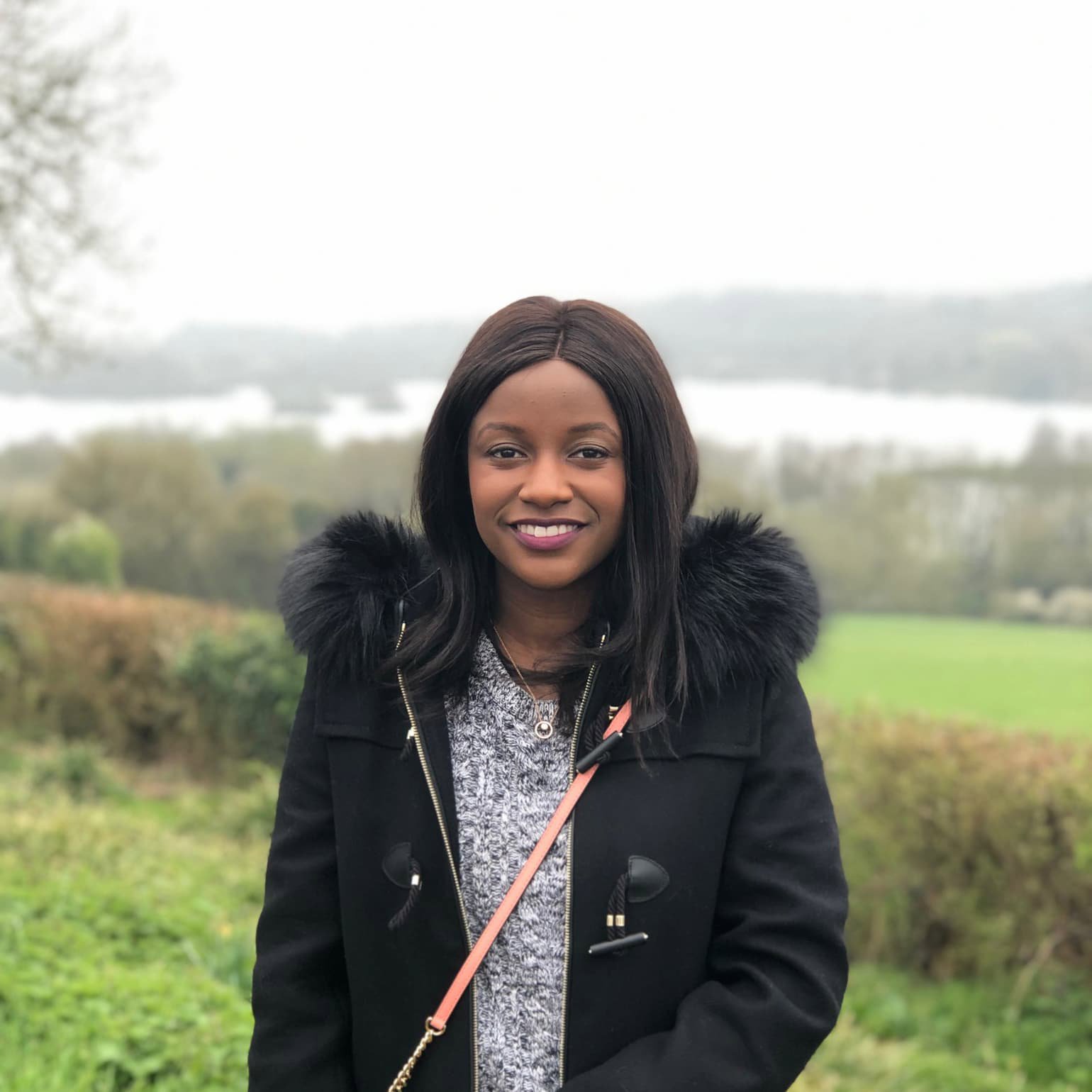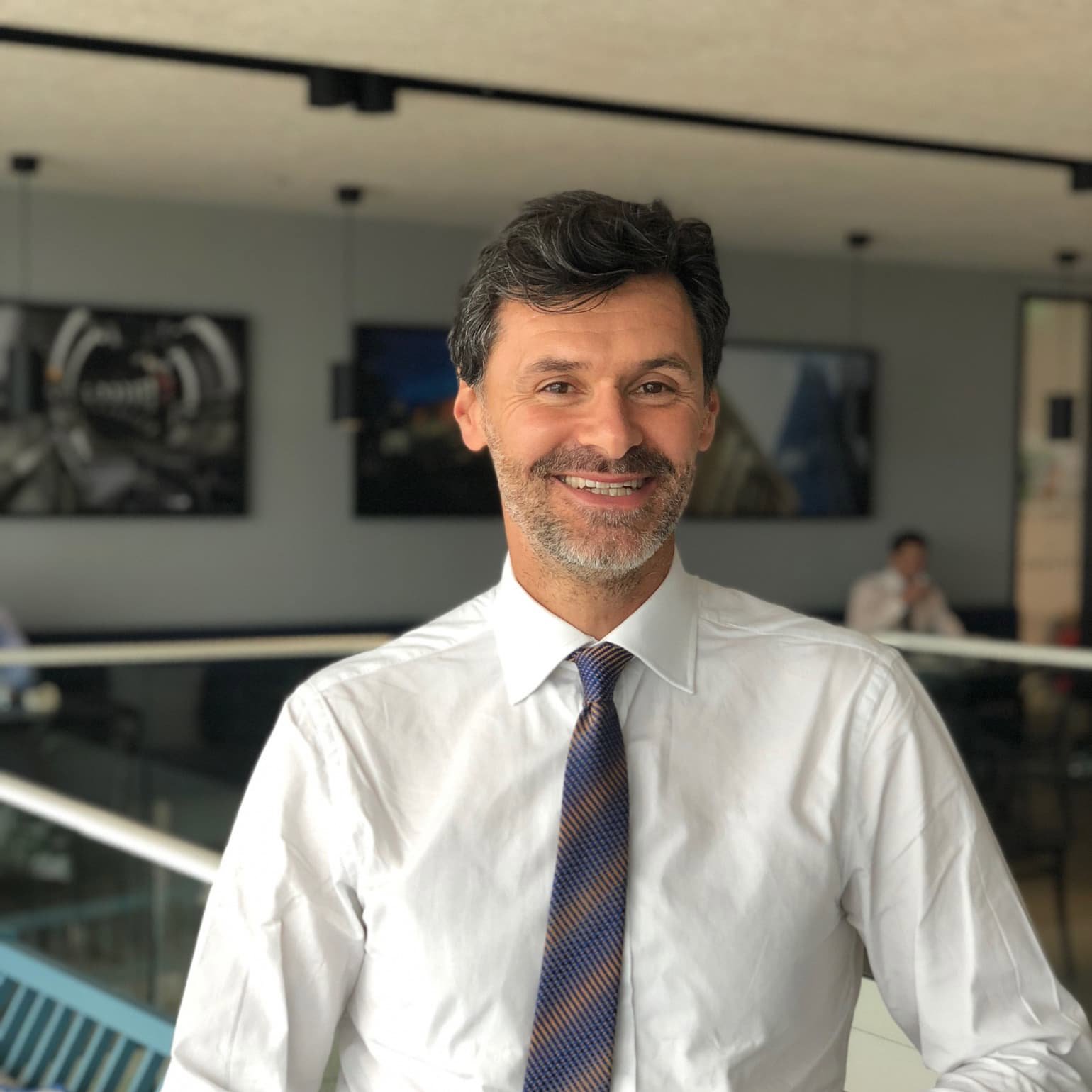What does a career in the sector look like?
Business and management consulting covers a wide range of roles in businesses across sectors. Roles can be varied and can involve working on marketing a product, research and development to create and refine products, analysis of company’s performance or operations including improving efficiency or sustainability. Consulting roles are similar but tend to be more project-based, working with clients to do those tasks for them.
There are an increasing number of roles helping businesses, investors, and governments capture opportunities, transform operations, manage risk, and drive growth in an orderly transition to a low-carbon, sustainable economy. With their problem-solving skills and ability to understand the wider picture when analysing human and natural systems, geographers are well placed for roles focused on social and environmental responsibility.
Chipo Meke, Management Consultant, KMPG
"I like the variety of my role – sometimes you can get really lucky and get a good project that you enjoy and… sometimes you don’t! However, the beauty of consulting is that projects (usually) have an end date so you have the opportunity to do different roles and work with various clients which gives you exposure that you would not necessarily get working in industry”

Hannah Cooke, Management Consultant, EY
"I specialise in procurement. On a day-to-day basis, I work directly with clients to advise on procurement issues. Projects have allowed me to work across a range of industries including the financial sector, energy sector, local public sector, central government, police and pharmaceuticals.

Advice on getting a job in the sector
Grad schemes run by consulting firms, banks and other major businesses are a prominent and often highly competitive route. Grad schemes are usually applied for in the last year of an undergraduate degree, so be aware of your options and application deadlines well in advance.
Internships can be an important way to develop experience, demonstrate interest in a particular sector, and can land you a full-time role afterwards. Internships commonly – but not exclusively - take place in the summer holidays.
You’ll need to keep an eye out for opportunities and plan ahead to meet application deadlines – your university careers service can also offer advice on opportunities. Internships aren’t just for final year students, so start thinking now about what industries or organisations you might like to try a placement in. Check out our career profiles to get an idea of a range of jobs and industries geographers work in.
Work placements can be included in some degrees, including some geography degrees. This may be in the form of part-time placements, a month during holiday periods, or as a year in industry. In the latter case you will spend a year of your degree or an extra year on a placement with a company. Work placements provide experience of a workplace and should develop your professional skills as well as your academic and technical expertise, but
However, there are many other ways to get started in the sector. Smaller businesses are 99% of UK businesses, so think broadly in your search and don’t just focus on the biggest organisations. Your degree does not have to be in business, economics or management – the range of skills developed in a geography degree is attractive to employers.
In fact, a degree isn’t always necessary - Apprenticeships, or retraining with technical qualifications, are alternative routes to getting started in business. And there’s always the option of starting your own business!
Transferable and soft skills are important, and networking can be very useful, so don’t be afraid to reach out to people in the area you want to work in for advice. Technical skills can be more useful for entering more analytical roles, but if you’re on a training or grad scheme the employer should bring you up to speed on the skills you need over the course of the scheme. CPD is important as you progress in this career.
To see real examples of geographers with careers in business and management, including how they got there, visit our career profiles on banking and finance, business and innovation, and entrepreneurship.
Hannah Cooke, Management Consultant, EY
"My geography degree gave me a lot of transferable skills that I use regularly including report writing and team work skills. The use of Excel/SPSS was also useful in providing experience in data analysis as well as some topics such as globalisation and economic geographies which provided me with some business related knowledge that has been useful".

Chipo Meke, Management Consultant, KPMG
"I would highly recommend trying to get an internship/summer vacation scheme. I was not able to do one as I needed to keep my part-time job whilst I studied but these are so useful to give you experience and get a step ahead of other graduates.
Make sure to get work experience (e.g. part-time job) and get involved in societies or sports whilst at university – it is important to have good grades but it is also important to show you have other achievements that set you apart from everyone else.
If you are able to, speak to people within your chosen career – ask people who have a similar level of experience to you as they will be able to give you a true understanding of what your day to day role will entail. Networking is everything and these connections may be able to refer you onto a graduate scheme.
Finally, many will apply to the Big Four (KPMG, EY, Deloitte and PWC) and the Big Three (Mckinsey, Bain and BCG). Definitely apply to them. But also consider other smaller boutique firms which can provide great experiences too!”

Andy Rumfitt, Director of Economic Development, AECOM
"I was very lucky to work with some very inspiring applied economists and land economists at Cambridge Economic Consultants in the firm’s early days. I didn’t realise at the time but this was an “apprenticeship” in all but name. Lesson: get any practical experience you can”

More resources
Prospects – advice on getting a job via grad schemes
Prospects – advice on working for a small business
Prospects – advice on business, consulting and management jobs
National Careers Service job profiles for business and finance and management roles including
Featured image: @karsten_wuerth/Unsplash

